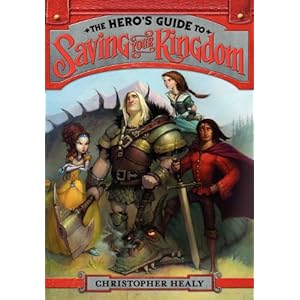Once upon a time I read The Jungle by Upton Sinclair, and I became a vegetarian for about two days. Cold Cereal by Adam Rex may convince me to give up breakfast cereal for the duration. I know it’s fantasy, bordering on satire, but the satirical elements are effective. For example, from a footnote about Goodco Cereal Company on page 206:
“[N]atural cereal grains have been almost entirely replaced in Goodco products by vat-grown imitation grain meals such as Gorn, Weet, Noats and Gorn-Free, the Gornless Gorn substitute.”
 OK, I know it’s not quite that bad, but I did hear a piece on NPR the other day about how a few farmers are feeding their pigs discarded chocolate scraps and other scraps such as “bread, dough, pastries, even Cap’n Crunch” because the price of corn is so high. Can the adulteration of breakfast cereal be far behind?
OK, I know it’s not quite that bad, but I did hear a piece on NPR the other day about how a few farmers are feeding their pigs discarded chocolate scraps and other scraps such as “bread, dough, pastries, even Cap’n Crunch” because the price of corn is so high. Can the adulteration of breakfast cereal be far behind?
To get back to the book, Cold Cereal is the story of three children –Erno Utz, his twin sister Emily Utz, and their friend, Scottish Doe–against an evil cereal corporation, Goodco, that wants to take over the world. The children have allies–a leprechaun (or clurichaun) named Mick, a pooka, a very big guy who may or may not be Bigfoot, and some mostly ineffective adults. The Evil Breakfast Food Corporation also has its own cast of strange employees and supporters, including evil members of a international fraternity that sounds suspiciously like a parody of the Freemasons.
The first half of the book was both funny and absorbing, but somewhere in the second half I lost track of the machinations and plot twists. By the end I was confused about what the “rules” of magic in the book were, who belonged where, and what happened and how the questions raised in the first half were answered. Either I’m a little slow-witted, which is entirely possible, or Mr. Rex tried to incorporate too many strands in his story, too many stories in his novel, and too many permutations to his magical world. In short, I got lost somewhere King Arthur and Intellijuice and the goblins that impersonate Queen Elizabeth.
However, I did enjoy the parts I did understand, and I recommend Cold Cereal to those of you who don’t mind being disillusioned about the ingredients in your breakfast cereal and who can follow a myriad cast of twisted magical characters in a complicated tale of breakfast turmoil.
I think it’s set up for a sequel. Either that, or I missed the tying up of the loose ends of the plot, or Mr. Rex just likes things complex and open-ended.







